Takuya Fujioka
Nascimento : 1930-09-04, Himeji, Hyōgo Prefecture, Japan
Morte : 2006-10-20

Honda
Based on the long running manga of the same name by Sadao Shouji.
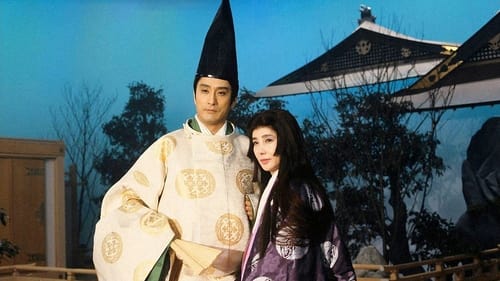
TV movie based on the novel "The Tale of Genji" by Murasaki Shikibu, which tells about the life of Prince Hikaru Genji, who was nicknamed "Shining" by people for his dazzling noble beauty. In 1991, to commemorate the 40th anniversary of TBS' founding, it was released with a total production value of around 1.2 billion yen and aired in two parts.
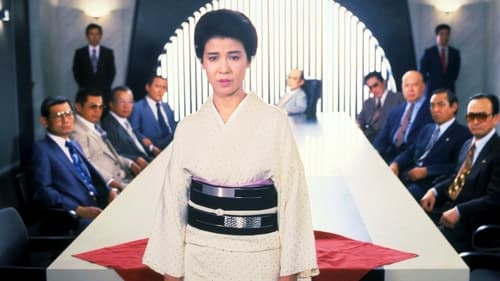
Takaaki Shigemune
Yuki, the wife of a leading member of the Domoto family, must assume her husband’s role as a yakuza boss while he serves out a prison sentence. As she grows into her new role, she manages to assert control and increase the influence of her organization. But when her husband is released from prison, she finds him a changed man, lacking the character necessary to be a powerful yakuza leader. Conflict ensues and their marriage is challenged by a desire for power.

Children's movie about a dog that can type messages into a word processor. When his owner is kidnapped, the canine summons his fellow dogs to help in the rescue effort.
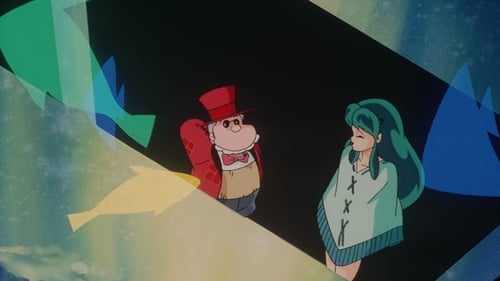
Mujaki
As the perpetually lecherous Ataru and his friends prepare for a carnival at Tomobiki High School, they gradually realize the days are literally repeating themselves. Any effort to break the pattern dumps them back where they started.

Kitamura
Tora-san returns to his family home to learn that his brother-in-law cannot go to Mitsuo's (Tora-san's nephew) athletic event. Tora-san volunteers to take his place, but gets into an argument with his brother-in-law's boss and returns to the road. He meets a young woman in Niigata who, unbeknownst to him, is a popular enka singer.

Colonel Matsumoto
After a highly successful raid on Singapore Harbour, soldiers of Z Special Unit lead a new expedition in Singapore, with disastrous results.

A lavish retelling of the true story of the final voyage and ultimate destruction and sinking of the battleship Yamato, Japan's greatest flagship during the Second World War.

The Moon Mask Rider is a tokusatsu movie produced by Purumie International/Herald Enterprises and distributed by Nippon Herald Pictures, was released theatrically on March 14, 1981. Considered Japan's answer to the American box-office fiasco, The Legend of the Lone Ranger (released the same year), this updated version of the Moonlight Mask legend bombed at the Japanese box-office. Daisuke Kuwahara (who, like Klinton Spilsbury , disappeared from doing films) plays George Owara (Moon Mask Rider's new alter-ego), and the rest of the cast made up of veteran action starlets: Sue Shihomi, Daijiro Harada and Takayuki Godai.

Elite college graduates commit perfect financial crimes though loopholes in the law during the 1950s.

Kurobei Ohno
Esta é a história de "Os Quarenta e Sete Ronins". Baseado em eventos históricos em 1701-2, o filme conta a história da queda do clã Asano e a vingança de seu ex-samurai sobre o autor da catástrofe. Lorde Asano foi instigado, ou enganado, a desembainhar sua espada dentro do palácio do Shogun - um crime que acarretava pena de morte. O recém-instalado Shogun ficou furioso com Asano e ordenou que todos os bens de seu clã fossem apreendidos, o que significa que cerca de 20.000 samurais e plebeus ficaram desempregados e sem terras de uma só vez. Quarenta e sete desses ronin (samurais sem mestre) se uniram para se vingar do Lorde Kira, que instigou Asano a desembainhar sua espada.
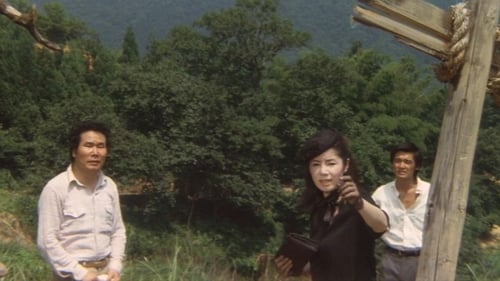
Kuno
The heir to a family fortune discovers that a curse has been placed on it, put there centuries before by a band of samurai warriors. Adaptation of novel by Seishi Yokomizo
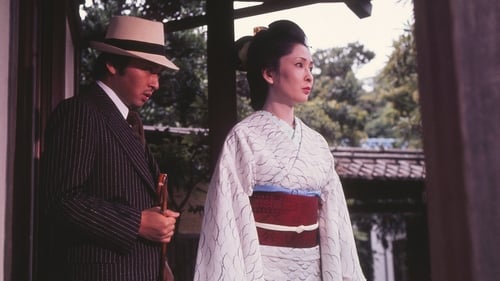
In 1930, the chance meeting of a novelist and one of his fans opens the door to a series of mysterious events culminating in the death of a wealthy industrialist who may have been leading a double life.
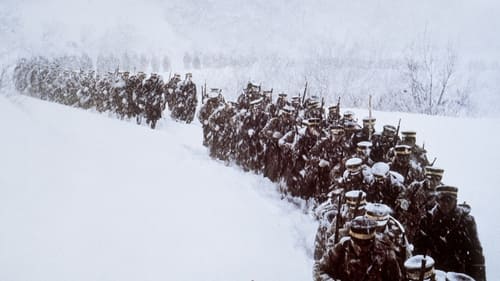
Two infantry regiments of the Imperial Japanese Army—210 men overall—tackled Mt. Hakkoda in the winter of 1902 to prepare for war with Russia.
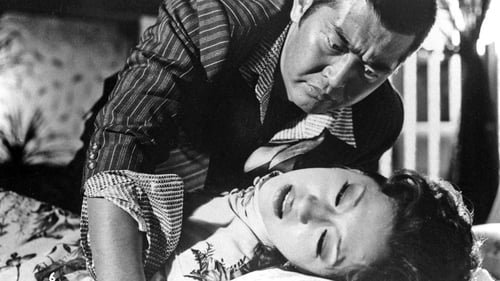
Masaki Sugi
A police investigator cracks down on yakuza business, but once he realizes the police are in negotiations with certain factions, he sides with his own syndicate of choice.

Yonemoto
The eighth sequel of the series by the successful “Fukasaku and Bunta” collaboration revolves around the men of a lesser organization that are constantly bullied by the upper organization and “bleed in vain” in gang wars.

Mainly the story of Shinsuke and his stepmother, ranging from Shinsuke's infanthood to his mid-teens. Coal workers and the mines dominate nearly every aspect of the life of the characters. Shinsuke's father dies while bravely using dynamite to rescue a group of trapped Korean miners. Several older men attempt to help he and his mother cope, including a kind Korean and a Harley-riding yakuza.

Gentaro Maruyama
Tells of the feelings and sufferings of a young girl with an incurable paralytic disease.

Kurihara, Branch Manager
A detective is charged with investigating a bank corruption scandal.

A film by Katsumi Iwauchi.
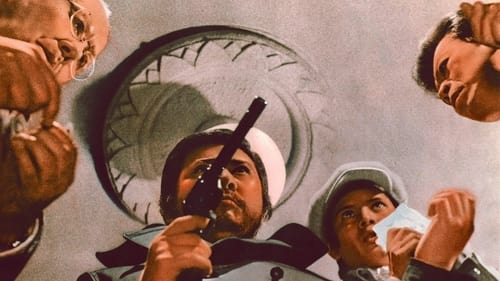
An action-comedy about three men who try to bilk money out of gambling dens.

Contrast between two outlooks on life: one of a poor factory worker and the other the heir to millions.

Yamazaki
Maruyama, a day laborer, is living on an abandoned ship at the port of Osaka when he meets an elusive man offering a job.

A Toho film featuring the comedy duo Konto 55, (コント55号), comprised of comedians Kinichi Hagimoto and Jiro Sakagami.

A drama by director Masaharu Segawa.

Gondo
Story of love, jealousy and hatred among waitresses of a deluxe bar.
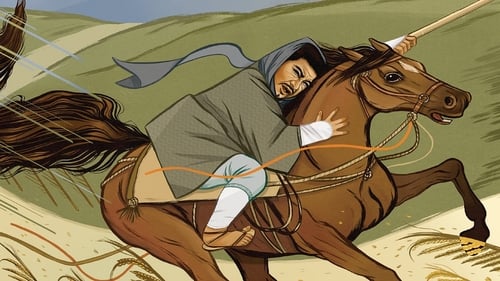
Shinkichi
Zatoichi is forced to kill a young man who owes a debt to a yakuza boss. Moments later, his sister Osode arrives with the money she earned (prostituting herself) to pay his debts. The bosses true motives are revealed and he attempts to steal Osode even though the debt is paid. Zatoichi realizes his grievous error and protects the girl from the gang. Osode and Zatoichi are caught in a dilemma as she must rely on her brother's killer for protection and Zatoichi wrestles with the injustice he has caused.

President
The film portrays a satirical view of today's heartless money-oriented society.

A Toho comedy film staring the Crazy Cats.

Tsune-san
A series of murders has been committed by someone with a new model gun, a Mord-Gessel X 38. Indeed, Daisuke himself is almost killed while investigating the case. This occurred while he was with Ritsuko, daughter of a company president. Detective Kimura thinks that the president himself, returned to Japan after an absence of fifteen years, might be the killer, or at least the man who supplied the gun. Ritsuko's father limps and though she explains this as the result of a traffic accident, Kimura remembers a narcotics smuggler named Suginami who shot himself in the ankle and then escaped from the hospital. He believes that the company president and the drug peddler are the same.
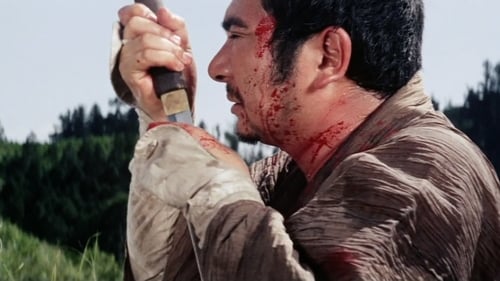
Zatosanji
When a local gambling house kidnaps some peasants because they failed to pay their debts, a rival gambling house pays their debts and sets them free.

Quick Drawer Dog (早射ち犬 Hayauchi inu) is a 1967 film directed by Tetsutarō Murano. It is the eighth film in the Inu series.

The Crazy Cats, a Japanese musical-comedy group, were showcased a series of comic adventures throughout the 1960s. Las Vegas Free-For-All, one of their most popular movies, featured scenes filmed on location in Las Vegas, Los Angeles, and Hawaii. Appearing with the seven Cats were the lovely Mie Hama and such Japanese musical artists as The Peanuts, The Johnnys, The Drifters, and Jackie Yoshikawa & the Blue Comets.

Ichitarô
A Japanese film

When a gifted Japanese craftsmen dies, his three daughters are summoned to decide who will take over the family ribbon business in this family drama. Only one daughter cares to carry on her father's work, but she is met with resistance from her stepmother. One sister cares nothing for the artisan tradition, while the other is an icy opportunist whose only love is for money. It is the daughter who cares the most for her father's work who wanders away in a symbolic journey of self discovery.

Yozakura
Third film of the yoidore hakase series
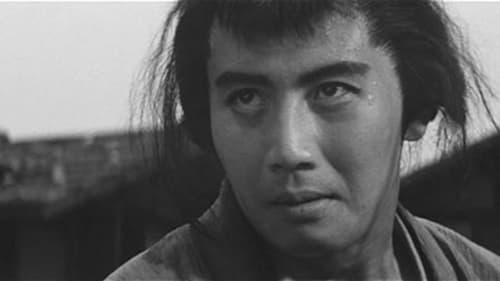
A naively honorable samurai (played by Raizo) comes to the bitter realization that his devotion to moral samurai principles makes him an oddity among his peers, and a very vulnerable oddity in consequence. He takes the blame for the misdeeds of others, with the understanding that he will be exiled for one year and restored to the clan's good graces after the political situation dies down. As betrayal begins to heap upon betrayal, he realizes he'll have to live out his life as a master-less ronin, if not hunted down and killed.

General Secretary
Film by director Kenji Misumi

Yokichi
Loyal samurai Samanosuke is attacked, mutilated, and left for dead while carrying out a mission for his clan. He recovers but has lost an eye and an arm. Taking a new identity as Tange Sazen, he searches for a stolen urn which has hidden significance to his clan. But Tange Sazen has his own reasons for seeking the urn.

Nomura
A bunch of young, angry and penniless misfits are full of great vitality. They aren’t quite up to joining the yakuza and execute a variety of petty scams. After being approached by a yakuza and asked to become a spy for them, they are now planning to take 10 million yen from the yakuza.
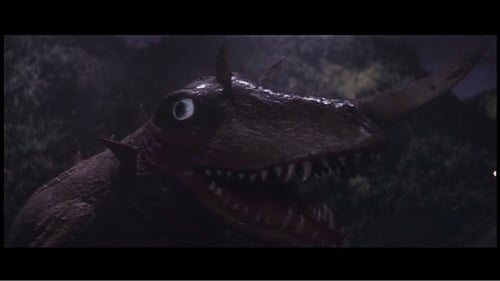
Dr. Sato
Gamera escapes from his rocket enclosure and makes his way back to Earth as a giant opal from New Guinea is brought back to Japan. The opal is discovered to have been an egg that births a new monster called Barugon. The creature attacks the city of Osaka by emitting a destructive rainbow ray from his back, along with a freezing spray capable of incapacitating Gamera.

In the book of the world's greatest rogues, the number one man can only be one person.
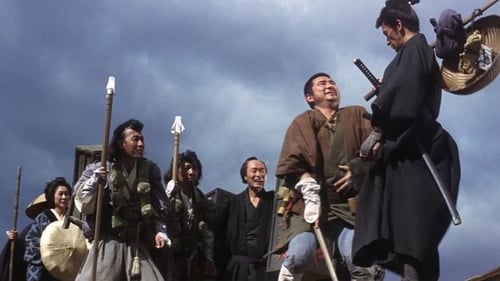
Zatoichi makes friends with a dangerous chess player, while fending off angry yakuza and bloodthirsty relatives out for revenge, and trying to save a sick child. Meanwhile, his luck with dice is turning.

John Trelawney (voice)
This was the first episode of Mushi Pro Land, a unique series of 60-minute animated programs. It was also Japan's first 60-minute animated TV program. However, the series never materialized and only this episode was actually aired. The story follows Stevenson's "Treasure Island," featuring characters in the form of animals. For example, the pirate Silver is illustrated as a wolf, where the main character Jim is changed into a rabbit. This has, therefore, nothing to do with the "New Treasure Island," Tezuka's masterpiece Manga.































